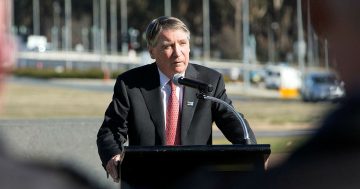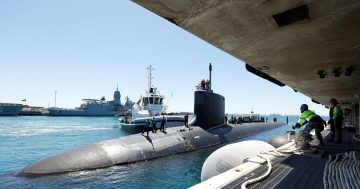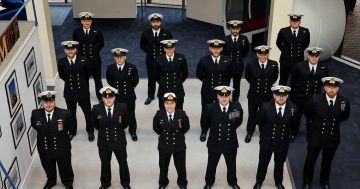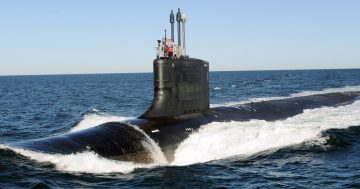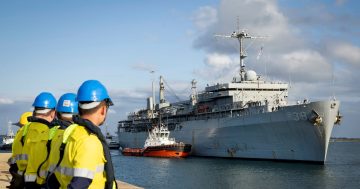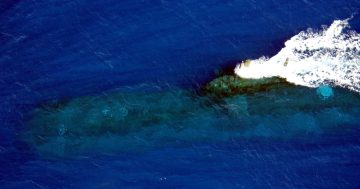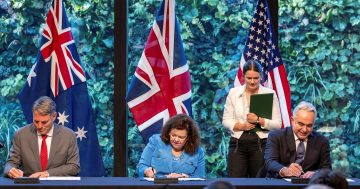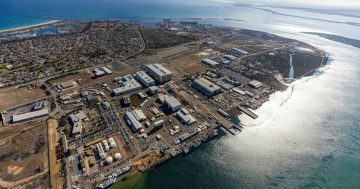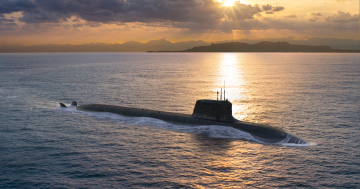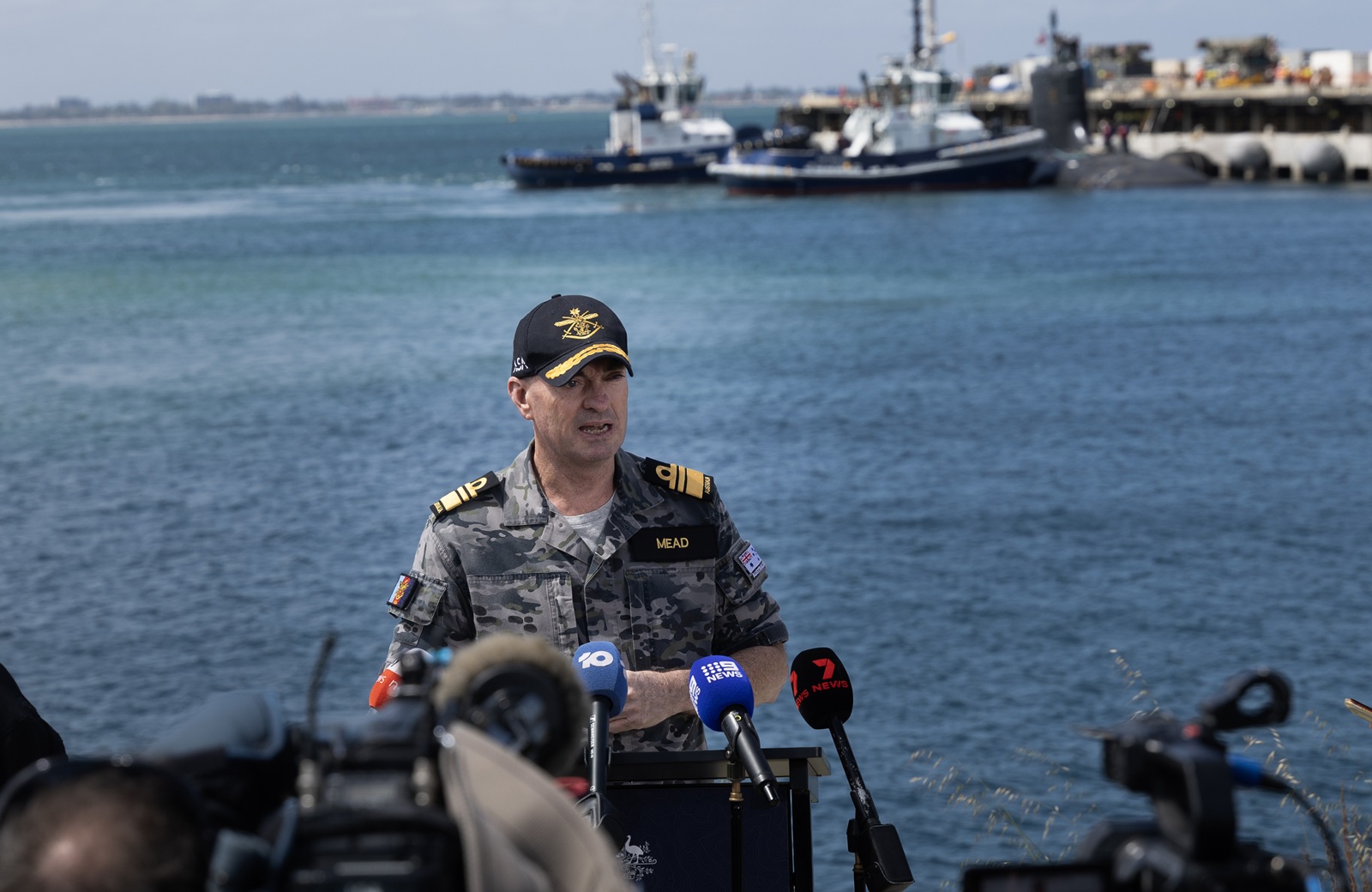
The Director General of the Australian Submarine Agency Vice Admiral Jonathan Mead will leave the ASA in mid-2026. Photo: ADF.
The inaugural head of the Australian Submarine Agency (ASA) which was formed to deliver the nuclear-powered submarines under the AUKUS Pillar I construct has announced he will step down from the role next year.
Vice-Admiral Jonathan Mead has told the Federal Government he will leave his position of Director-General of the ASA in mid-2026.
In announcing VADM Mead’s departure, Defence Minister Richard Marles said the government was “deeply grateful” for his outstanding contribution and leadership over the past four and a half years.
“I think it is hard to think of anyone who has made a contribution to our nation of the scale as Admiral Mead,” Mr Marles told the ABC this morning.
“The character of a country is defined by what it can do, and in large measure that is about military capability.
“With having a nuclear-powered submarine capability, we will be in a group of seven countries which operate that,” he added.
“And from the work that Jonathan did in 2021 to present to America and the United Kingdom the proposition of us acquiring that capability and that we would be a safe recipient of it, to the point of the AUKUS announcement in September 2021, through to developing the optimal pathway, Jonathan was at the heart of the decision of the US Government to provide Virginia-class submarines to Australia in the early 2030s – a decade ahead of where we would be getting the Australian made submarines.”
VADM Mead told the ABC that, when he joined the Royal Australian Navy 40 years ago, he never imagined Australia would acquire nuclear‑powered submarines (SSN).
“In the beginning of February 2021 I get called to the Secretary and the Chief of Defence Force office who advised me, or directed me to provide options to government on the acquisition of a nuclear-powered submarine,” he recalled.
“And I thought I’d seen a lot in 37 years, but the enormity of that task was breath-taking. I knew how monumental this step would be for Australia, a generational leap in capability and unprecedented.
“I remember sitting in the White House and the Eisenhower Room, and the Pentagon, thinking, ‘How did I get here?’”
VADM Mead explained how the plan formed and accelerated after the Albanese Government came to power in 2022, and how the idea to acquire US Virginia-class submarines as an interim capability came about.
“Those ‘crown jewels’ had not been shared before by the US – since 1958 [with] the UK – had never shared them before – we were entering a very, very special club,” he said.
“They wanted two things from us: they wanted to know that we were absolutely committed, and they wanted to know that we could safely and securely steward nuclear technology.
“And we had a change of government, and I got very clear directions from the Deputy Prime Minister on what he expected, and he was looking for an interim, immediate capability that could defend Australia,” he added.
“He was also looking for an enduring capability when it came to nuclear-powered submarines.”
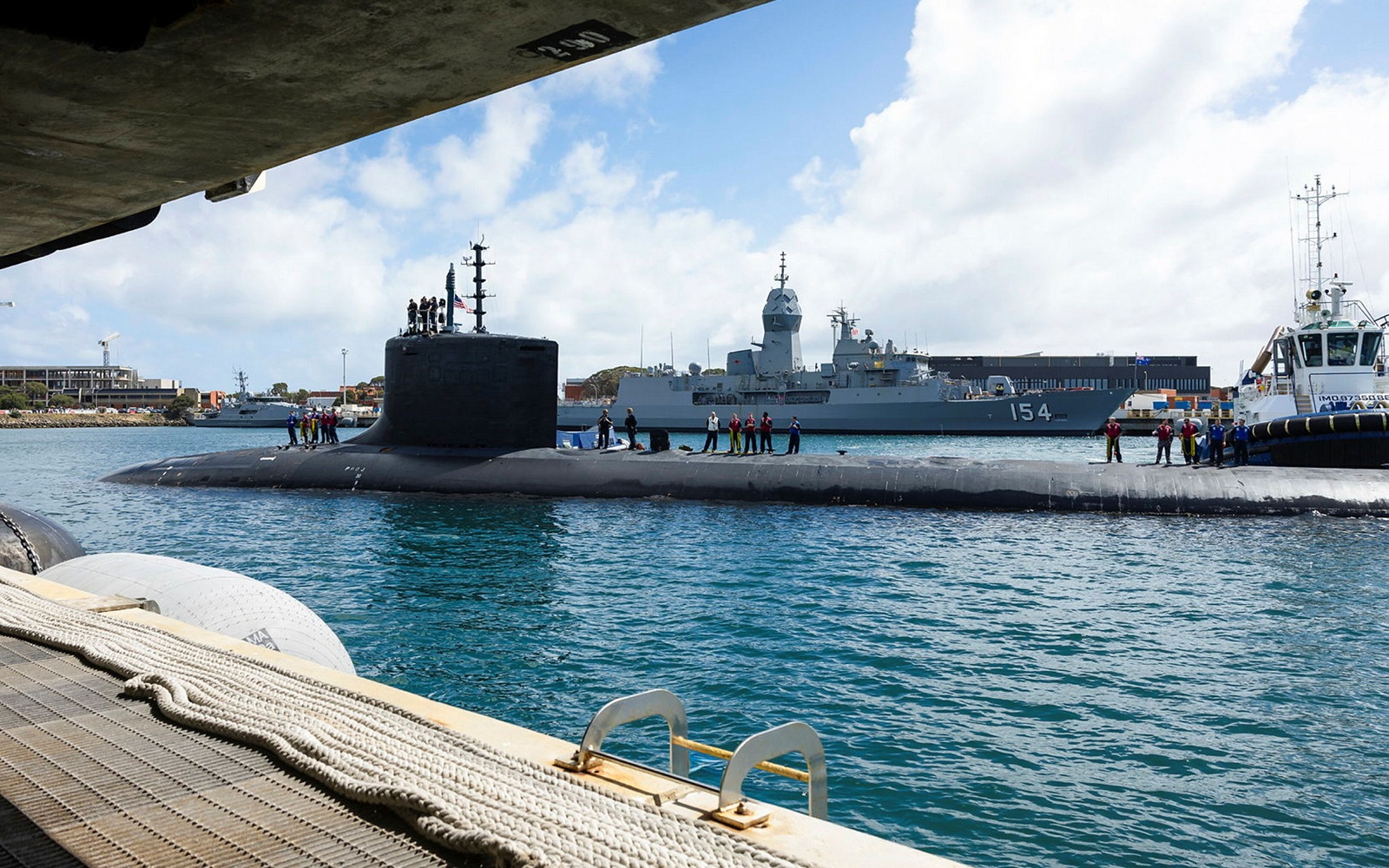
The Virginia-class SSN USS Vermont arrived into HMAS Stirling on 29 October for a planned submarine maintenance period (SMP). Photo: ADF.
That interim capability probably remains the riskiest element of the AUKUS Pillar I program, with the US Navy continuing to struggle to increase its production rate to sufficient levels for its own needs, let alone those of Australia, despite the injection of billions of Australian dollars into the US supply chain.
But VADM Mead said the induction of the US Navy’s Virginia-class SSN USS Vermont into a submarine maintenance period (SMP) at HMAS Stirling earlier this month had given him renewed confidence that the plan would progress through the ‘optimal pathway’.
“[USS Vermont] will be undertaking the most complex maintenance by any US submarine outside American soil,” he said.
“And this is being done by Australian workers, Australian industry, Australian supply chain, with the assistance of the US.
“That gives me confidence that the US has total support and believes that Australia is on the right pathway, we have met all the milestones for the optimal pathway.”
Mr Marles said the work done by VADM Mead could not be overstated.
“Jonathan was the first employee, today there are 900,” he said.
“You take that across the board, over what will be five and a half years. I mean, this is a huge contribution to Australia. And the truth of the matter is that we owe Jonathan a debt of gratitude.”
Neither Mr Marles nor VADM Mead would be drawn on the results nor the timing of the release of the Pentagon’s drawn-out review into the AUKUS Pillar I plan, saying only that they would leave it to the US Government to make any announcements when it is ready.
“I think we just need to see the end of the AUKUS review that the US are going to do, analyse it,” VADM Mead said.
“We will then work with our partners, and then we will provide advice to government on what that review is.”
Mr Marles added, “We’ve been really clear with our American counterparts that we not only respect but welcome the opportunity to do a review of AUKUS.”


